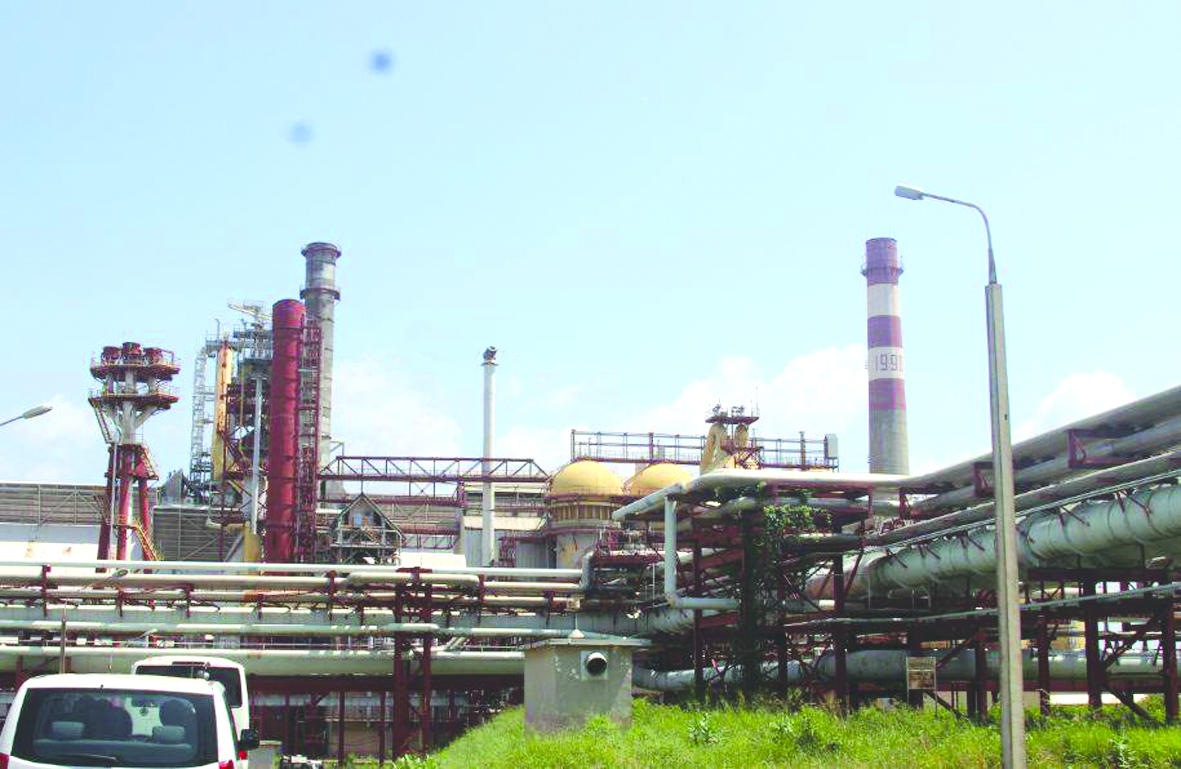- NASS Will Resist Ajaokuta Steel Concession, Says Dogara
The Speaker, House of Representatives, Yakubu Dogara, has said the National Assembly will resist any move for the concession of Ajaokuta Steel Company Limited, saying doing so will amount to mortgaging Nigeria’s future.
The Speaker, who said it was a collective shame to all leaders that the project had yet to be completed after so many years, made these statements when he led members of the House Committee on Steel to Ajaokuta Steel in Kogi State on Monday.
Dogara also announced that the House would consult with stakeholders to work out ways to source for the $500m needed to complete the last phase of the project, while noting that except the political will was lacking, getting the funds to complete it should not be an issue.
He said the reason why the steel company had not been completed was due to a leadership problem, saying where there was competent leadership, how to get funds for such a multi-potential project should not be a problem.
While commending the President Muhammadu Buhari’s administration for showing direction by first ending a case for arbitration in a foreign jurisdiction, Dogara stated that there were many ways through which the $500m could be sourced, including from the Sovereign Wealth Fund, Excess Crude Account and recovered financial crimes’ loot.
The Speaker added that the House would hold another of its sectoral debates, where the lawmakers would meet with relevant agencies, including the Economic and Financial Crimes Commission, whose Chairman, Ibrahim Magu, would be expected to brief the House on how much it had recovered as proceeds of corruption that could be utilised for the completion of Ajaokuta Steel.
He explained that his determination to ensure that the steel company was revived was born out of the promises that the company holds for Nigeria’s teeming population in the forms of power and gas development, economic boost, creation of thousands of jobs, development of manufacturing sector, development of infrastructure and investor appeal, among others.
According to him, running and managing the company can be given to private investors as concession after completion since the government is not a good manager of business enterprises.
Dogara stated, “Imagine if this plant had been completed in 1986, where Nigeria would be at the moment. Any patriotic Nigerian that visits this place will shed tears irrespective of the part the person is from; and for a foreigner who visits here, when he hears people describe this place as a shithole, he will go with the impression that it may be true. We have no reason not to complete that plant.
“You cannot concede your future, it is never done. I’m yet to see a nation that even conceded its bedrock and still succeeded. If you see one, just tell me. And that’s why previous attempts to concede it were not possible.
“We keep repeating the same things and expecting to get different results. That’s the definition of stupidity and since we are not stupid, we will not repeat it. We can make Nigeria proud so that every black man in the world can beat his chest. Anyone who plans to outsource the completion of this plant will definitely run into problems with us.”
Earlier, when the parliamentary delegation visited the Government House, the Speaker told Governor Yahaya Bello, “We have a major promise to the country that is located here in Kogi State, which is the Ajaokuta Steel Company Limited. We all know the benefits of steel development. You cannot be an industrialised nation without developing the steel sector.
“Of course, I’ve seen the resolution that was passed and adopted by the Kogi State House of Assembly but I feel that this is just not a Kogi issue, this is a Nigerian issue in view of the major promise that this sector holds for Nigeria.
“I believe that as soon as we put this plant into operation, immediately there will be 10,000 jobs for engineers and the technical workers. That’s even at the level of the first phase; and talk about other non-engineering staff, thousands again and other splinter opportunities that will come, that’s projected two million jobs.
“We don’t need money, all we need is leadership. Wherever you see development anywhere in the world, it is not money that brought it; some they say it is money but it is leadership. As a matter of fact, it is even leadership that brings the money.”
In his comments, Bello commended Dogara for partnering Buhari to ensure that Ajaokuta Steel Company was revived and put into use again.
He assured him that the visit would be worth the while, and agreed with the Speaker’s position that funds should not be the reason why the company would not be completed if the political will was present.

 Billionaire Watch3 weeks ago
Billionaire Watch3 weeks ago
 Startups4 weeks ago
Startups4 weeks ago
 News4 weeks ago
News4 weeks ago
 News4 weeks ago
News4 weeks ago
 Bitcoin4 weeks ago
Bitcoin4 weeks ago
 Naira4 weeks ago
Naira4 weeks ago
 Forex3 weeks ago
Forex3 weeks ago
 Treasury Bills4 weeks ago
Treasury Bills4 weeks ago

























